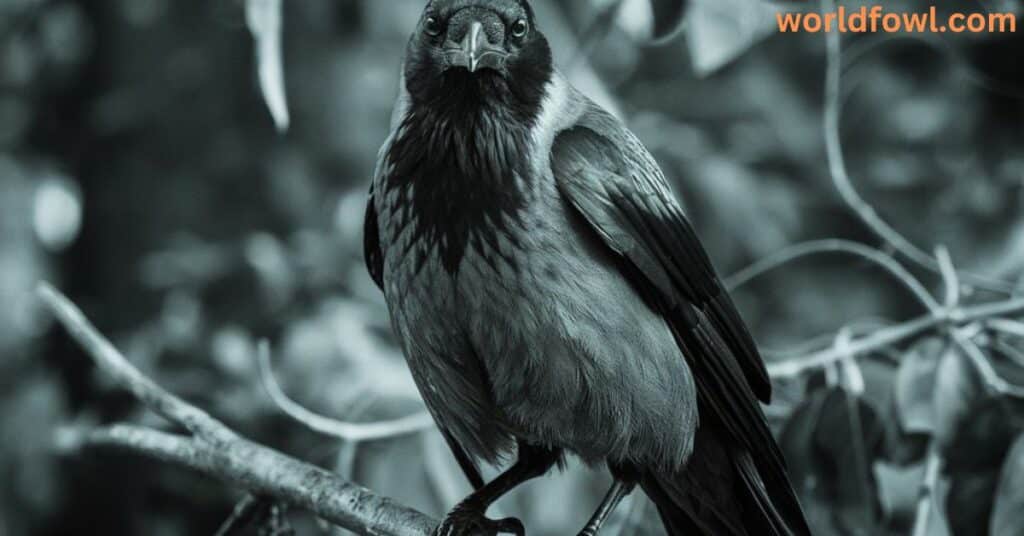Crows are intelligent, highly social birds that are often found in urban and rural areas worldwide. Known for their problem-solving skills and complex social behavior, crows are fascinating creatures. However, despite their remarkable intelligence, these birds can sometimes become aggressive, leading to concerns about crow attacks on humans. So, will crows attack humans? While it’s not something most people have to worry about daily, understanding the conditions under which crows might act aggressively is crucial, especially if you live in an area where these birds are abundant.
In this article, we’ll dive deep into the reasons behind crow attacks, types of aggression, and how you can prevent conflict with these intelligent creatures. We’ll also cover the most common scenarios where crow attacks happen, and what you should do if you’re ever caught in a situation where a crow feels threatened by you.
Who Are Crows?
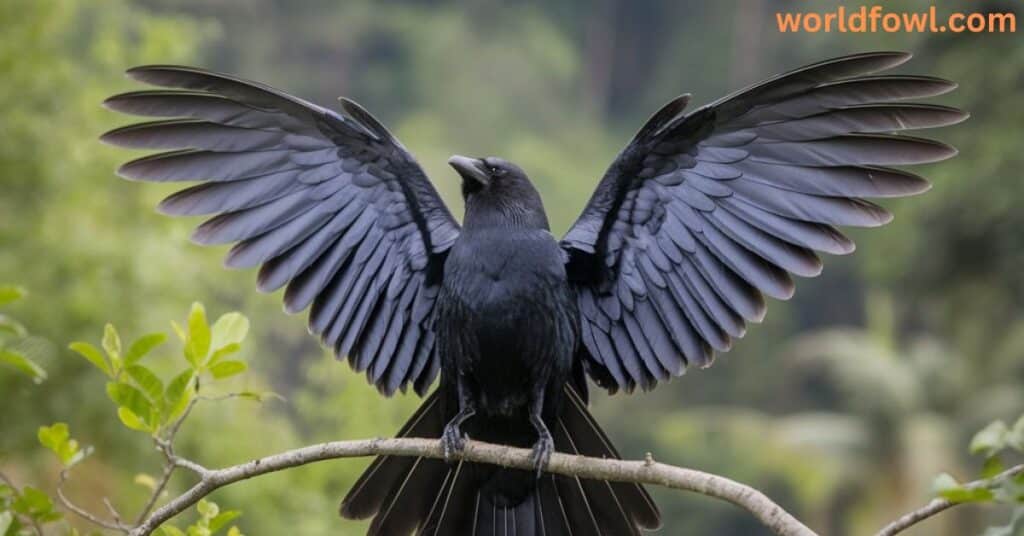
Before we dive into the causes and types of crow attacks, it’s essential to understand who crows are and why they behave the way they do. Crows belong to the Corvidae family, which also includes ravens, magpies, and jays. These birds are known for their exceptional intelligence. Studies on crow intelligence have shown that crows can use tools, understand cause and effect, and even solve complex puzzles.
Crows are also notorious for their crow facial recognition skills. They can remember human faces and associate them with positive or negative experiences. This makes interactions with crows a bit more complex than with other bird species.
Crows are not only intelligent but also highly adaptable. They thrive in both rural and urban wildlife interactions, often living near human settlements. This proximity to people can lead to crow-human interactions that range from peaceful coexistence to occasional aggression, especially when their space or territory is threatened.
Here’s the “Who Are Crows” section presented in a table format:
| Aspect | Details |
|---|---|
| Scientific Classification | Crows belong to the Corvidae family, which also includes ravens, magpies, and jays. |
| Intelligence | Crows are known for their exceptional intelligence, including tool usage, problem-solving, and memory skills. They can recognize human faces and solve complex puzzles. |
| Crow Species | Common species include the American Crow (Corvus brachyrhynchos) and the Carrion Crow (Corvus corone), found in both urban and rural areas. |
| Facial Recognition | Crows possess remarkable crow facial recognition abilities. They can remember human faces and associate them with positive or negative experiences. |
| Social Behavior | Highly social, crows live in groups, often forming large roosts. They engage in cooperative behaviors and communicate through a variety of vocalizations like cawing behavior. |
| Adaptability | Crows are highly adaptable to urban environments, often seen in cities where they create nests in trees or on buildings. This has led to frequent urban wildlife interactions. |
| Lifespan | Crows can live up to 7-8 years in the wild, but their life expectancy increases in urban areas where they face fewer natural predators. |
| Diet | Crows are omnivorous, eating a wide variety of foods, from seeds and insects to human food scraps and small animals. |
| Reproductive Behavior | Crows build large nests in trees and on buildings, where they lay eggs and care for their young. They can be highly protective of their nests, especially during the breeding season. |
This table concisely breaks down key aspects of crows, highlighting their intelligence, social behaviors, and adaptability.
See Also : Do Jack Rabbits Attack Humans?
Why Do Crows Attack Humans?
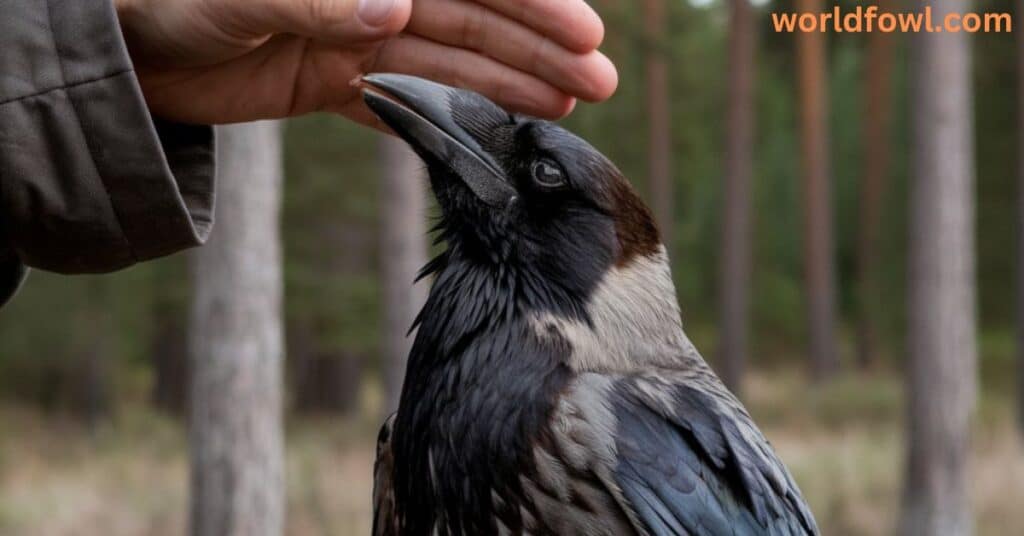
Crows typically do not seek out humans to attack, but they are highly protective and territorial, especially during certain times of the year. There are several reasons why a crow might attack a human, and understanding these motivations is key to preventing conflicts.
Protection of Nests
The most common reason for a crow to attack a human is the protection of its nest. During the breeding season, crows are extremely protective of their nests and their young. When a crow perceives a human as a threat to its nest, it may resort to aggressive tactics to drive them away.
- Nest defense tactics can include dive-bombing, where crows swoop down at perceived threats, or mobbing behavior, where several crows join forces to intimidate and chase off a threat. These attacks are rarely serious but can cause discomfort or minor injuries, especially if the crow targets your face or eyes.
Perceived Threats
Sometimes, crows may attack simply because they perceive a threat. Crows are highly attuned to their surroundings and can become agitated if they sense danger. If a crow feels cornered or stressed, it may act aggressively to defend itself.
This threat perception is linked to a bird’s natural instincts to protect itself and its family. Aggressive bird behavior like this can occur even when there is no direct threat to the crow itself, but only a perceived one.
Territorial Aggression
Crows are territorial animals, especially during the breeding season. When they are nesting, they tend to defend large areas around their nests from potential invaders. If a person unknowingly enters their territory, the crow may see this as a provocation and attack. This territorial aggression is most commonly seen in areas where crows have established nests in trees or urban structures.
See Also : Do Squirrels Eat Bird Eggs?
Types of Crow Attacks
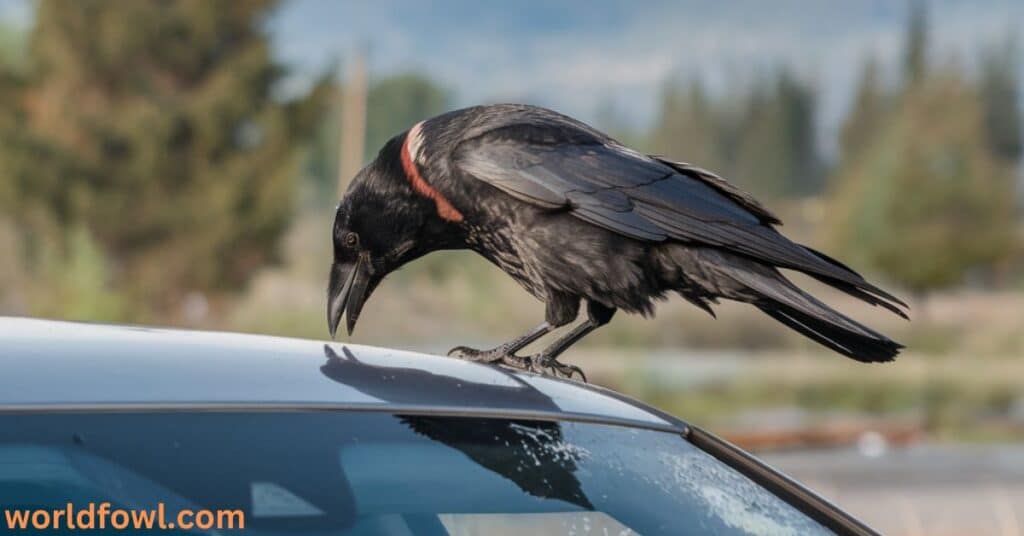
There are several different forms of aggression that a crow may display toward humans. These attacks usually serve as a warning to get away from the bird’s territory or nest. Let’s look at some of the most common types of crow attacks.
Dive-Bombing
One of the most dramatic forms of crow attacks is dive-bombing. Crows use this tactic to quickly swoop down at a person, typically from a high vantage point like a tree or rooftop. The crow’s goal is to scare the intruder away by making them feel threatened. Dive-bombing is rarely dangerous but can be startling and uncomfortable, especially if the crow is persistent.
Mobbing Behavior
Another type of attack is mobbing behavior, where multiple crows join forces to drive an intruder away. This is especially common during the breeding season when crows are protecting their nests. Crows are incredibly social animals and will often work together to intimidate or chase away threats. Mobbing can involve crows calling to each other in loud cawing behavior and swooping in a coordinated effort to keep people at bay.
Pecking and Clawing
In rare cases, crows may resort to pecking and clawing if they feel cornered or if their young are threatened. This type of aggression can lead to scratches or minor wounds, especially if the crow is particularly agitated. While not as common as dive-bombing or mobbing, this is still a risk if you are in close proximity to a crow’s nest.
See Also : Do Jaguarundi Attack Humans? Myths vs. Reality!
When Are Crow Attacks Most Likely?
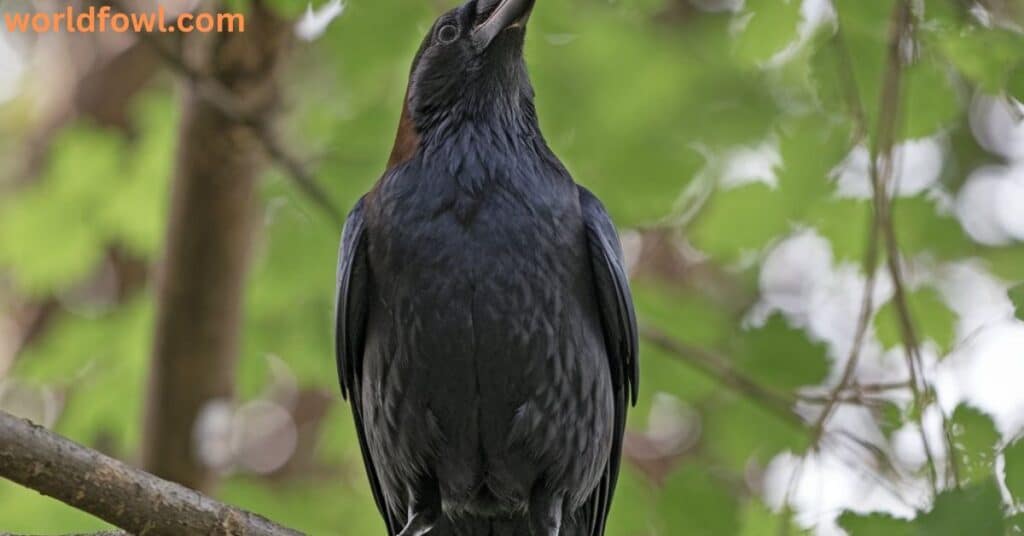
Crows are not always aggressive, but certain conditions make crow attacks more likely. Understanding when and where these attacks occur can help you avoid conflict with these birds.
Breeding Season
The breeding season is the most critical time when crows are likely to attack humans. During this period, which typically spans from late winter to early summer, crows are highly protective of their nests and young. They will go to great lengths to defend their territory, including attacking perceived threats.
- Nest protection during the breeding season is vital for the survival of the young, so crows can become very aggressive if they feel their nest is in danger. It’s best to avoid areas where crows are known to nest during this time.
Urban Areas
As crows adapt to living in urban areas, there are more opportunities for humans and crows to interact. In crowded cities, urban crow conflicts are more common, especially near parks, residential areas, and campuses where crows build nests in trees or on buildings.
- Urban wildlife interactions can lead to increased instances of crow aggression, particularly when crows are trying to nest in spaces where people are frequently passing by.
Proximity to Nests
If you find yourself near a crow’s nest, especially during the breeding season, you are more likely to provoke an attack. Crows are incredibly sensitive to anything they perceive as a threat to their nests. This includes not only humans but also pets or other animals that may approach the nesting area.
See Also : Why Do Crows Chase Hawks? Do Crows Hate Hawks?
Preventing Crow Attacks
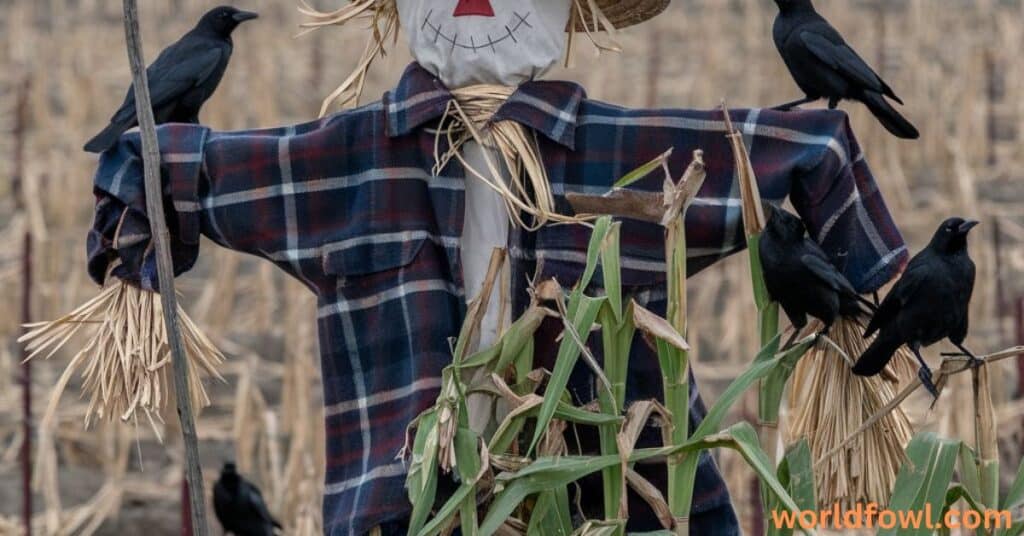
While crow attacks are not common, there are several precautions you can take to avoid conflict with these birds.
Avoid Nesting Areas
The best way to avoid being attacked by a crow is to avoid nesting areas. During the breeding season, crows will be especially protective of their young. If you know there are crows nesting nearby, stay clear of the area to minimize the chances of provoking them.
Do Not Feed Crows
Feeding crows may seem harmless, but it can lead to problems. Urban wildlife interactions often become more problematic when people feed crows, as it can lead to increased aggression and dependence on humans for food. Avoid feeding crows, especially in areas where they are known to nest.
Use Protective Gear
If you live in an area where crows are known to be aggressive, consider wearing protective gear such as a hat or umbrella. These items can help shield you from dive-bombing crows and make you less of a target.
Maintain Distance
If you see a crow that seems agitated or is acting aggressively, it’s best to maintain distance. Slow, calm movements are crucial when you’re near a crow’s territory, as sudden actions can trigger aggression.
See Also : Do Hawks Hunt At Night – The Truth Revealed
What to Do if Attacked by a Crow
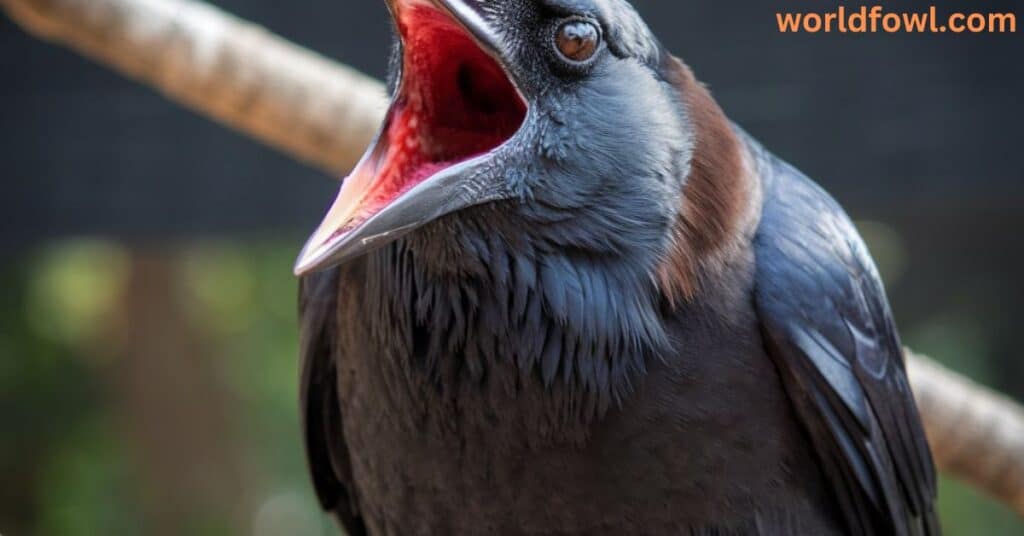
If you find yourself in a situation where a crow attacks, there are several steps you can take to protect yourself.
Stay Calm
It’s important to stay calm if a crow attacks you. Panicking can make the situation worse and may escalate the aggression. Crows are sensitive to sudden movements, so try to remain as still as possible.
Move Away Slowly
If the crow continues to attack, slowly move away from the area. Don’t make any sudden moves, as this could provoke further aggression. By backing away calmly, the crow will likely lose interest and stop following you.
Protect Vulnerable Areas
When a crow attacks, it will often target the head, eyes, and face. If you’re being attacked, protect these vulnerable areas using your hands, arms, or any available objects. If you have an umbrella, for example, use it to shield yourself.
FAQs: Will Crows Attack Humans?
Do Crow Attacks Cause Serious Injuries?
Most crow attacks don’t result in severe injuries, but they can cause scratches or bruises. The main risk is from the crow’s sharp beak and talons, especially if it’s trying to defend its nest.
Can Crows Remember Faces?
Yes, crows can remember human faces and associate them with positive or negative experiences. If a crow has had a negative encounter with a person, it may become aggressive toward that individual in the future.
Are Crow Attacks Common?
No, crow attacks are rare and typically only occur during the breeding season when crows are more protective of their nests.
Why Do Crows Attack Pets?
Crows may attack small pets, especially if they feel that their nests or young are threatened. Pets can be seen as a potential threat, especially if they are near a crow’s nest.
How to React if a Crow Is Stalking You?
If a crow is following you or acting aggressively, move to an area where you are not near its nest. If it continues to stalk you, consider using an umbrella or hat for protection.
What Should I Do if I Find a Crow’s Nest?
If you find a crow’s nest, stay away and avoid disturbing it. Contact local wildlife organizations for advice if you need help with managing the nest.
Conclusion: Will Crows Attack Humans?
So, will crows attack humans? While it’s rare, crow attacks can happen, especially if the birds feel threatened or are protecting their nests during the breeding season. Understanding crow behavior and knowing how to avoid provoking them is the key to preventing these aggressive encounters.
By respecting their space, avoiding feeding them, and staying calm if you find yourself in a tense situation, you can ensure a peaceful coexistence with these highly intelligent and fascinating creatures. Whether you’re in an urban environment or a rural area, it’s always wise to keep your distance from crows during nesting season to avoid potential aggression.
Remember, crows are simply doing what they need to do to protect their families—just like we would. So, let’s respect their space and enjoy their incredible intelligence without fear of conflict.

Henry James is a seasoned blogger and a passionate storyteller on “World Fowl.” With years of experience crafting engaging content, he brings a unique blend of expertise and creativity to his writing. Henry specializes in exploring diverse topics with depth and clarity, captivating readers worldwide.

